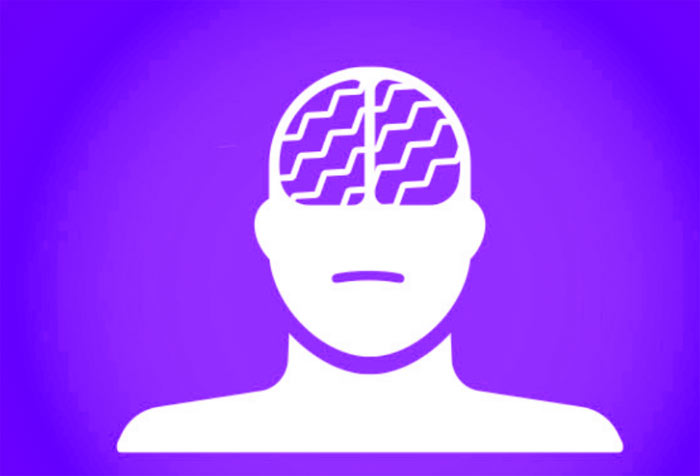There always are some thoughts, reasonings, and images that come out of the blue, occupy our brain, and demand our attention. If anything is intrusive, they are! They can be utterly irrelevant, discomfiting, and distracting. Why do they spring up and what do they mean?

Intrusive ideas can run over a wide range, the most common ones being:
Self-destructive ones
Sometimes when you are driving, all of a sudden you may be hit by a thought, “What will happen if I drive into that lamppost?” And you begin to wonder how it may be if you stuck a knife into yourself or jumped from the roof…
Such thoughts may be frightening, yet they carry a tinge of appeal. If they are fleeting, it could be all right, but if they recur and are hard to chase away, it can be a bad diversion.
Homicidal ones
The sudden outbursts of aggression can be directed at other people. You can drive not into the lamppost but into someone else’s car. Push somebody through the window. Maybe even play with the thought of being a spray killer, a molester, a master criminal, or a fiend in a human shape.
If such ideas come to young parents, they are usually baby-related: parents can think suddenly of dropping the baby, inflicting an injury, or leaving the tiny one behind in a strange place.
Naturally, it doesn’t mean you are out for these people’s blood. These thoughts are troublesome and unwelcome. Still, they keep springing up at most uncomfortable moments.
Intrusive images about making love
Intrusive ideas and images related to sex are very common, too; they can be harmless or include inflicting harm.
Sexually-centered importunate thoughts may cover a wide field and cause apprehension:
- to develop sexual attraction towards minors
- to submit to erotic appeal of a relative, family member
- to feel a kind of attraction inconsistent with your sexual perception of yourself
Relationship-related intrusions
Some intrusive thoughts are potentially damaging to some relationships, and they bring a lot of anxiety.
Relationship-intrusive ideas may assume different forms:
- working up obsession over the partner that leads to reflections about their feelings and looking for faults
- needing endless reassurance about the partner’s feelings
- raising questions about faithfulness
Negative inner dialogues

If the thoughts that keep crowding in your head are highly negative, they may be one of the depressive signs. When overwhelmed by a sad mood, people are apt to start thinking along the lines that they are losers, totally inefficient and incompetent. If their chagrin is great, these emotions may loom like real established facts.
Negative trains of thoughts automatically group themselves into patterns known as “thinking traps.” So those who indulge in mental negativity acquire a habit of taking shortcuts that lead to mental ruts that lead people round and round in derogatory notions. These “traps” need dealing with – for instance, you can reframe them—invent different, more positive attitudes of reading the situation at hand.
Thoughts and images of delusional nature
Sometimes intrusive thoughts take an obviously queer shape, indicating that there may be a kind of psychosis at work. If you feel certain that some people are keeping a watch on you, registering where you go and what you do, or they intend to kidnap you, carry you away, do you in; if you see things that shouldn’t be there or hear voices issuing orders or giving advice, it might be initial indications of a developing mental disorder. It can be brought about by certain drugs.
Importunate ideas of religious nature
Of religion-related thoughts, the following can recur on a regular basis:
- about God pointing out your deadly sins and denouncing you to infernal sufferings
- when you enter a religious building, irrelevant and irreverent thoughts begin to flood in
- some prayers go on sounding in your head
- doubts if your connection with God and your belief is strong enough
- testing and questioning your faith
Intrusive and repetitive health concerns
Health-concern thoughts hovering over your head can whisper things like “There must be a host of bacteria on your hands,” “You are not feeling well enough – you may have contracted covid.” You can become fearful of certain substances, chemicals, bodily emissions, anything. Moreover, you can go in fear of contaminating people around you.
What gives birth to the phenomenon?
There is a disorder known as OCD – a combination of obsessive ideas and compulsive actions. It can sometimes evolve into intrusive thinking.
Also, it can accompany PTSD, a disorder that can develop after severe trauma. The sufferers can also fall prey to recurring and insistent troublesome thoughts.
If you have PTSD, you always run a chance of getting hyperaroused, which causes a rush of memories connected with the trauma. Most intrusive images will be evocative of the traumatic incident.
Yet there are cases where no identifiable reasons for intrusive thoughts can be discovered.
How can one manage these intrusions?

Dealing with intrusive thoughts, bear in mind that they don’t actually have anything to do with you and your genuine desires. Many people are troubled by unwarranted ideas crossing their minds. Apart from OCD cases, you can dismiss these sorts of ideas. They can make you feel worse, but they are devoid of any purpose or meaning.
While it can be easy for a healthy person to be dismissive, a person with OCD can dwell on such thoughts and begin to ruminate, wondering how bad they are, thinking that they can really be murderers, pedophiles, or abusive individuals in their hearts of hearts. They’ll give these thoughts more power than they possess and begin trying to stifle them.
Thereby they give more attention to such thoughts; but since thoughts thrive on attention, the more they try to control them, the more persistent they are going to grow.
The basic notion is – when a thought occurs to you, it doesn’t follow that you will do what it says. This becomes obvious when therapists work with their OCD clients: if they keep thinking they might stab somebody, they give them knives to make sure that their thoughts and actions are very different.
If you understand this, you are the master: although unwarranted thoughts can make you feel bad and create anxiety, as soon as you let it sink in that they are meaningless, they can get disregarded easily.
Then, intrusive ideas might get fed or might not. Make sure yours don’t get food. Whenever an intrusive thought comes to you, respond with something like “How weird!” and begin to think of your own affairs. That is the healthy way of treating the situation; because if you try hard to suppress them, they grow in power. It’s like a bad game: as you put in an effort to manage the thought, it gets louder and goes on and on.
You can master the useful ability to move away from your thoughts, register them without attaching importance and let them go without leaving a trace.
Is there a reason to enlist professional help?
As a matter of fact, a lot of people are visited by thoughts out of the blue that are untimely and unwelcome. It doesn’t qualify their making an appointment with a mental health specialist.
If these visitations begin to haunt you and you worry beyond measure, it would be advisable to seek medical help. A therapist can get down to the root of the matter, explain what causes these intrusions and teach coping techniques.










